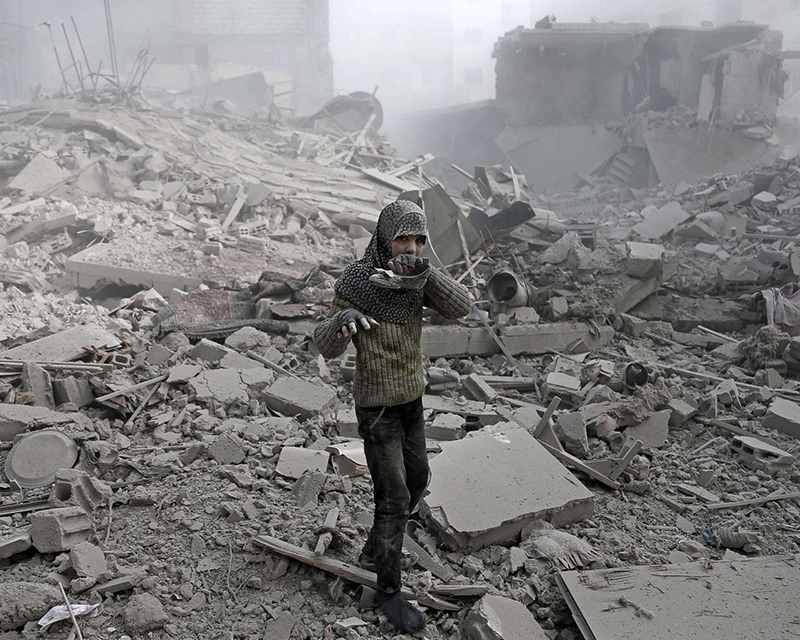In Eastern Ghouta, a rebel stronghold just east of Damascus, the capital city of Syria, bombings and now ground invasions continue to devastate the area. Since the United Nations Security Council (UNSC) has called for a 30-day truce on Feb. 24, fighting and humanitarian violations have only intesified. Despite Russia, a key ally of the Assad government, calling for a 5-hour humanitarian pause, fighting has continued with battering of the area by artillery and air strikes followed by a ground assault escalation by the Syrian government.
Eastern Ghouta has been a rebel stronghold since 2012, but recently, it has been under the spotlight from concerns of human rights violations. While thousands have fled, the civilians who remained are trapped within a dire situation with little to no medical aid, food, and means of escape. Various efforts by the UN and other involved parties have tried to, with limited success, palliate the ongoing humanitarian crisis.
“I cannot imagine what it would be like to be in somewhere like Eastern Ghouta,” Kevin Lee (10) said. “The first concern we should have regarding this situation, is not even who wins, but the fact that the civilians are safe, which means a secure way of escaping the contentious area.”
Russia had, for example, ordered a 5-hour humanitarian pause in the hopes that it would allow civilians to move out, and allow aid and food to go in. But as of now, almost no people have left and no aid has gone in.
The Russian and Syrian governments stated that this was due to rebels shelling the corridor, preventing passage, but a UN aid official, Jan Egeland, has criticized Russia’s efforts for being too meager as five hours was too short of a time to send in aid or evacuate citizens.
“Historically, Russia, under the Putin administration, has not generally been the one to care about humanitarian causes,” said Morgan Miller, US history teacher. “What I am saying is, right now, these humanitarian causes happen to align with their own motivations, but once it is not, they would probably cease to care about it.”
The UN Security Council had also unanimously passed a 30-day ceasefire resolution in hopes of temporarily preventing conflict in the area, but that resolution has gone ignored by both the rebels and the Syrian government, with an increase in intensity of conflict rather than a decrease.

